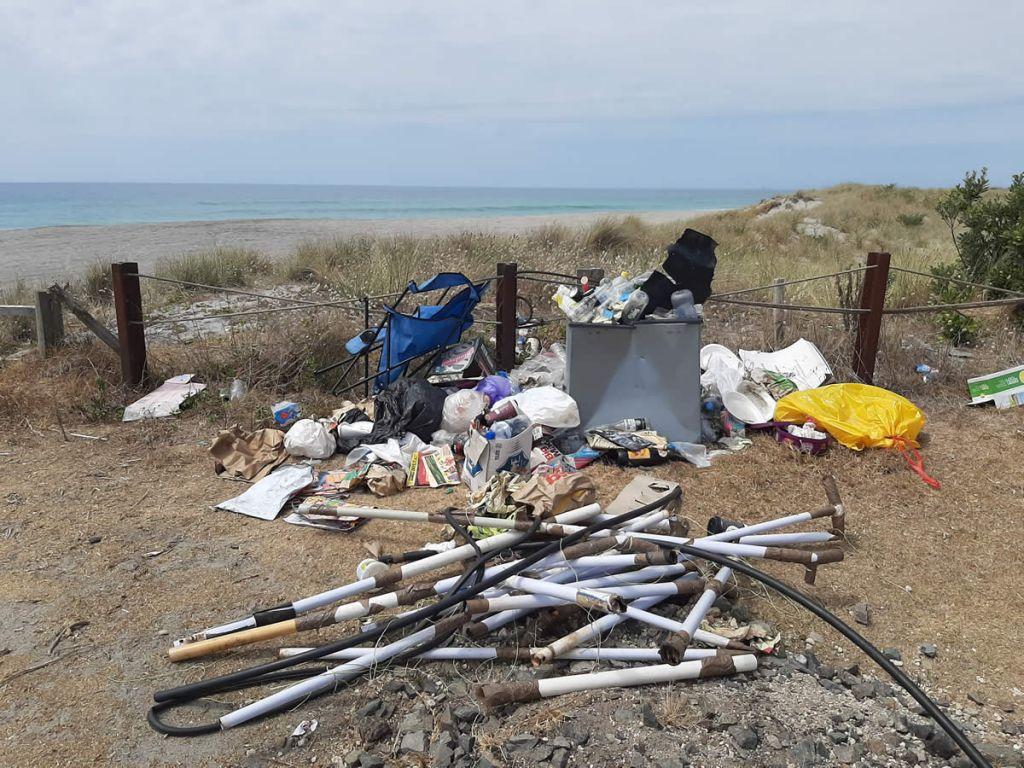Dealing with fly tippers and people who don’t clean up their dog’s poop is a filthy and frustrating problem, according to Whakatāne District Council regulatory staff who are often left to tidy up the mess.
Encouraging these people to change their ways isn’t working, so the Council is targeting its latest messaging at the 95-plus percent of people they say do the right thing.
And the message is simple: Dob in the dumpers or we'll all continue to pay for their laziness and lack of respect.

The appeal follows continual fly tipping incidents and a customer enquiry from a Harbour Road resident who says the harbourside beach near her property is regularly littered with dog poop.
Council Community Regulation Manager Graeme Lewer says he's frustrated about the lack of respect for our environment that he and his team see on a regular basis.
"While most residents dispose of their waste responsibly - including dog poop - it's the same old story of a few people spoiling it for the rest. We need help to identify the individuals responsible for these disgusting activities, so we can find them and fine them.”
Anyone who sees illegal dumping taking place is asked to record the vehicle registration number and any other information that may assist Council to identify those responsible. This also applies to dog owners who don’t pick up their pet's poop if they have a vehicle. Otherwise, a description of the dog, its owner and the time and place of the offending would be useful for Council staff.
The Harbour Road resident, who did not want to be identified, says she has spoken with a number of offending dog owners about picking up their pet's poop, but is often ignored and has even been abused.
She says Whakatāne’s population has increased and so too the dog poop problems. The resident says more signage and enforcement might help, but the Council should consider whether dogs should be banned on some popular beaches, similar to what happens on the main beach at Mount Maunganui.
Mr Lewer says some illegal fly dumping sites have been littered with basic household rubbish, but others have been the drop-off point for whiteware and electrical appliances.
"These people might think they're saving themselves some dollars by throwing out their rubbish illegally, but they're putting that cost back on to the ratepayers, and on the environment," he says.
"A lot of these items can be donated to charity or even sold at a garage sale or on Trade Me. We've also recovered a number of items from dumping sites that could have easily been taken to Community Resources Whakatāne (CReW) in Te Tahi Street for reuse or repurposing," Mr Lewer says.
The Council has a number of resources available on its website and in its offices that can assist residents with tips on reducing residual waste, knowing what can be recycled, and where different types of waste can be responsibly disposed.
"This type of anti-social behaviour is an ongoing problem that can't be solved by Council alone, so we're appealing to the good people of Whakatāne to let us know who's doing this stuff so we can clean up the problem and save unnecessary costs," Mr Lewer says.